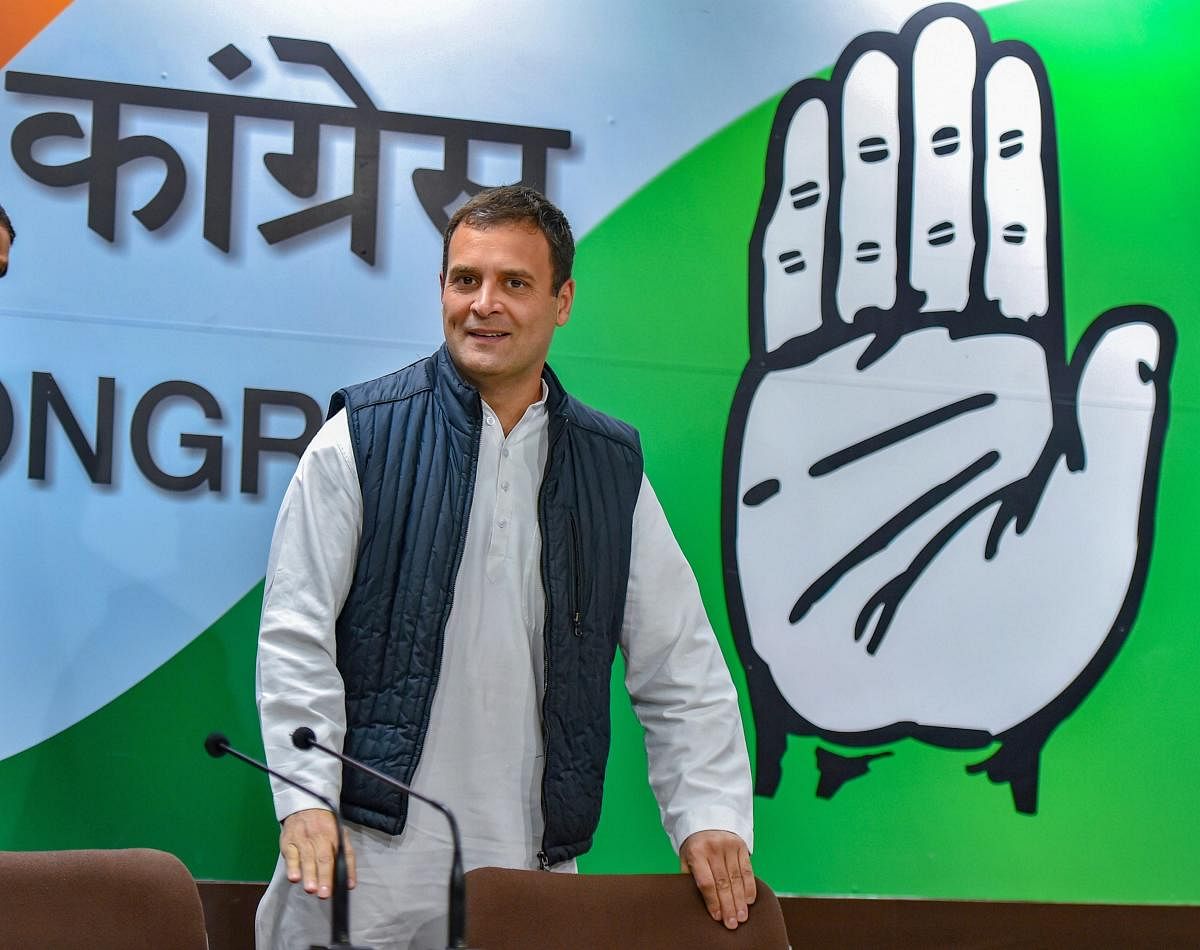
Some six months ago, Rahul graduated, vis-à-vis Narendra Modi, from being an object of ridicule to an object of anxiety. Rahul’s speech on the no-confidence motion against the Modi-led government was the point of transition. Since then, the BJP and its propagandists have tried hard to distort and demoralise him with ridicule and to scare away his potential allies. But, like in a nightmare, everything thrown at him has sharpened his motivation to become a leader and helped him along.
Modi came to power using a carefully calibrated strategy. Scientifically speaking, a change is needed only when a ‘problem’ is encountered which cannot be solved by existing agents and approaches. Problems are assets to political aspirants; for they help to create and manipulate ‘expectations’. People can be re-oriented only via altered expectations. In the absence of newer expectations, they sink into collective inertia. They refuse to be enthused by repetitions of the out-worn. They may be aware of the rot; but, in the absence of renewed hope and newer expectations, they submerge into simmering cynicism.
In 2014, Modi burst onto the scene doing two things. First, he defined the ‘problem’ sharply as the curse of under-development inflicted on the nation by the mis-governance of UPA, with the Congress as its nucleus. Secondly, he proclaimed that this unfortunate state of affairs can be solved readily. He claimed to have the magic wand. As a trailer to the main show of impending prosperity, he offered a fix of instant euphoria — each citizen becoming richer by Rs 15 lakh overnight from the mountainous black money he would bring home in a hundred days. That was in the short term.
In the long term, a heroic developmental push would be made, eradicating corruption from the body-politic. Congress was detected forensically as the impediment to people’s welfare. Congress-mukt Bharat was prescribed as the developmental imperative.
The narrative proved hugely profitable to Modi in the beginning. But a major problem was in the making. The problem was that the expectations raised had to be met. The problems identified had to be solved and promises delivered. In this respect, it was not necessary that remedial solutions were invented overnight.
The people of India would have been sustained in hope if there were signs that sincere attempts were being made to solve problems. That did not happen. Instead, newer problems — raising communal temperatures, aggravating social alienation, intensifying burdens of day-to-day living, including unprecedented distress to farmers, rural workers, traders and small-scale entrepreneurs — were created.
Shockingly, each aberration in governance was stridently justified on the alibi that the same was done by the Congress, too. Yet, the mantra of Congress-mukt Bharat continued to be mouthed as the sole remedy. Neither Modi nor the party recognised the self-indictment in this. The pattern continues. The public can see it only as a sign of poverty of ideas — a condition that is hard to sustain for any length of time. It doesn’t take much to prick this bubble, provided there is someone with the guts to wield a tooth-pick against it.
The bad news for Modi is that Rahul shows the guts to wield that tooth-pick. He seems also to have seen through the Shah-Modi strategy. I say ‘seems’ because he has made no claim to that effect yet. But there come moments in history when a key player in the destiny of a nation does the right thing, impelled by the imperatives of history. In such situations, his seeming weaknesses become his strength.
The reason I believe Rahul has read the situation right is as follows. His strength in the present context is his difference from Modi, which is mistaken for his weakness. Of this, too, he is conscious and he loses no opportunity to underline it in public. The crowning moment in this regard was the most famous ‘hug’ in India’s
post-Independence history: Rahul, after his no-confidence motion speech in parliament, walking across to Modi and stunning him — the past-master of diplomatic hugs — with a spontaneous hug. We saw Modi more disoriented by that gesture than he had ever been by anything else.
The BJP presented the mother of all opportunities to Rahul by discarding ‘development’ in favour of the temple card, about which it pretends to be ambivalent. It is a clear sign that Modi has abandoned the intention and the effort to tackle the original ‘problem’, disowning the ‘expectations’ raised by his proffered unrivalled competence to solve it. The mandir card is a confession of abandonment — the abandonment of the intention to evolve solutions to our endemic problems.
Rahul’s attempt to be seen as a practising Hindu — but not a religious bigot — is an intended antidote to BJP’s Hindutva card. It is obvious that it is hurting the BJP. Why else would that party get obsessed with it and become hyper-eager to ridicule and discredit it, even to the extent of undercutting its own exclusive dependence on opportunistic temple grandstandings.
Rahul chooses to remind the Hindu community of the humane, genial and tolerant genius of Hinduism, in contrast to the belligerent, malignant mask imposed on it by the Sangh Parivar. This is then complemented with attempts to redirect the political discourse towards real-life issues like unemployment, youth disenchantment, farmers’ distress and the raging disarray in our economy.
In the process, Rahul seeks to expose Modi as a quack in whose hands the health of the patient is in peril. That is why he harps on the chowkidar (the defender) of people’s welfare assuming a contrary role. The BJP may put on a stoic air in the wake of set-backs beginning with by-elections and coming to a head in the just-concluded assembly elections. But it has to learn that a monsoon of words cannot douse the hunger that broods and burns in the stomach. Today, there’s only one relevant slogan: deliver or die.
(The writer is former principal, St Stephen’s College, New Delhi)